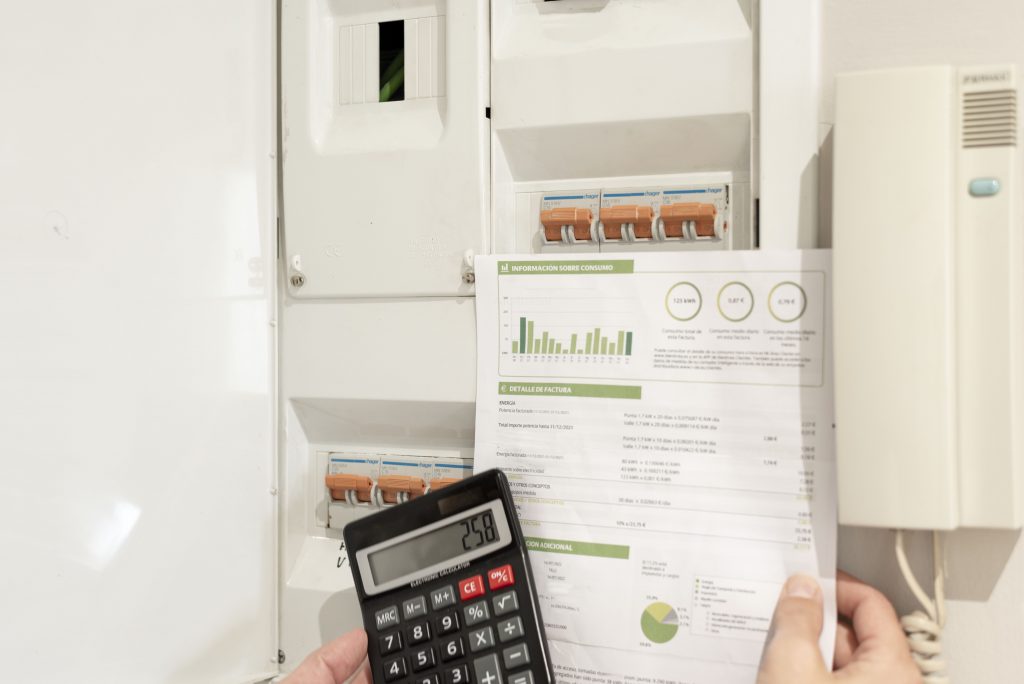
Balancing a household budget is rarely straightforward, particularly with the price of food and utility bills soaring in recent years. According to the Office of National Statistics, 45% of people are using less energy because of the rising cost of living.
Although there are predictions that the next price cap, announced on 23 February, will see bills fall by around £300, and inflation has fallen sharply from its peak in October 2022, energy costs still remain high by historic standards.
So it’s crucial consumers manage their consumption and seek out the best deals. Here are a few steps you can take to take control of your bills.
1. Regular Monitoring and Budgeting
The first step to help manage your bills is to understand how much they are, and why. So look back at your previous bills, and keep a close eye on upcoming ones, making a note of any untypical patterns you’ve adopted between periods. For example, maybe you’ve taken a few extra baths, or started using a tumble dryer? You’ll be able to make sense of any unusual spikes in usage, and adjust accordingly.
Having a smart meter really helps track your usage, and updates in real-time. If you don’t have one, taking regular meter readings can quickly build a picture, instead of waiting for the monthly bill. Taking a bit of time to read up on which appliances use the most energy will soon make you an energy-saving expert. For example, did you know that energy-saving light bulbs not only last 25 times as long as traditional bulbs, but they’re also a quarter of the price? So that means they’re 100 times more cost effective.
Once you have a better handle on your costs, create a budget that accounts for each utility, from energy to broadband. To help get you started, there are a number of free Budget Planner tools that can help you track your expenses, and manage your budget. Why not give one of them a try?
2. Change the Way You Pay
Opt for paperless billing to simplify your record-keeping, and pay for your energy by direct debit. Many providers offer discounts for doing this. Also, most energy suppliers will have their own app where you can check your bills and payment deadlines. Multiservice companies, like Utility Warehouse (UW), go a step further by allowing you to bundle your energy, broadband, mobile and insurance all in one bill – so you can say goodbye to that annoying pile of envelopes each month. The UW App also helps you submit meter readings, switch to better deals, and contact customer services, should the need arise.
3. Find a Better Deal
The first way to manage your utility bills is to cut your usage – either by consuming less or preserving more (like adding insulation, thermostats, or more energy efficient devices). The second is to pay less for what you do use. So keep an eye on the market to see what the best tariffs available are, as they can quickly change – particularly if prices are in a downward trend. If you follow energy related news, it could help you decide whether you should switch to a variable tariff, or lock in your price for a longer period with a fixed deal. Stay engaged, and you won’t overpay.
4. Involve Your Friends and Family
Educate family members, roommates or friends about the importance of conserving energy, and how their habits can impact utility bills. By involving everyone in more mindful practices, you all stand to benefit from some substantial savings. Maybe you all like to leave your devices plugged in and on stand by? ‘Phantom power’ can account for up to 10% of total household energy costs. That could cost you hundreds of pounds over the course of the year. So turn appliances off at the mains, and the lights off when you leave the room.
If they don’t already know, it’s also important to make your household aware about what might happen if you don’t pay your utility bills.
In 2022, in response to soaring energy costs, a pledge – Don’t Pay UK – was signed by over 200,000 people. While the idea of not having to pay your bills might seem appealing, the reality is you’ll be in even worse shape if you don’t. That’s because you could face late payment charges, or be forced to use more expensive methods like prepayment meters. In addition, it could impact your ability to borrow money in future as missed payments will have a negative affect on your credit rating.











